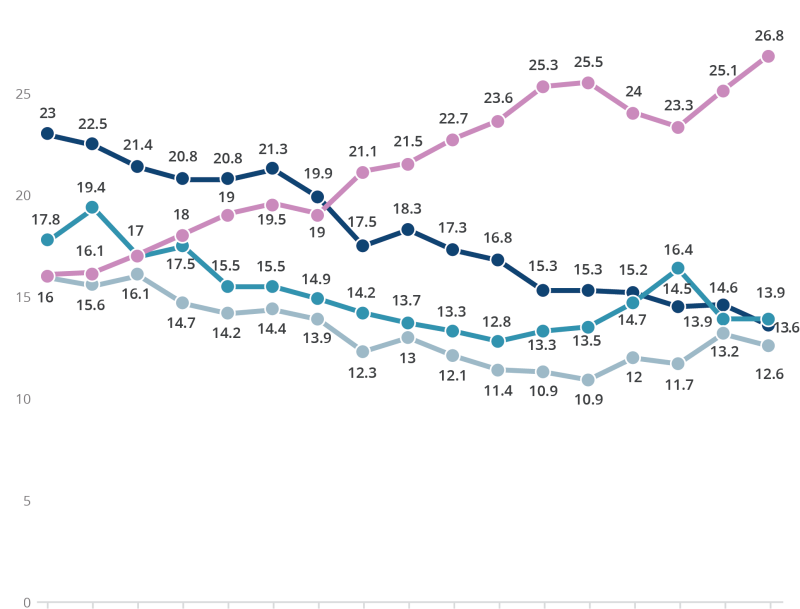
“The importance of religion in the lives of Americans is shrinking.”
That headline caught my attention as I was scrolling through the newsfeed on the NPR website earlier this week. The story was based on the latest results of a study by the Public Religion Research Institute (PRRI). As with similar type surveys, the reported findings and associated percentage breakdowns can be challenging to interpret. This percent of that group thinks this at least this much of the time. Cool. Now that I know, what do I do with the information?
Then, when I went back to the website to re-read the story and find the link to the PRRI report, there was another headline that caught my attention:
“The faithful see both crisis and opportunity as churches close across the country.”
The lead example for that story highlighted a United Methodist Church in Ohio that will hold its final worship service this coming Sunday (May 21) as it closes its doors.
For someone charged with leading a church, in this country, these headlines were not nearly as startling as they might be for someone else. This is the reality we are living in today. And, we’ve been moving in this direction for quite some time – it isn’t just the result of the COVID 19 pandemic. We know that people are becoming disaffiliated with religious organizations – they used to sit in our pews. We know that weekly worship attendance is a less reliable indicator of connection to a faith community as we engage with people through online worship or less frequent participation on our campus.
Like the statistical reports from the national surveys, interpreting our experience of these changes can be challenging. Figuring out how to respond to these changes is an even bigger challenge.
When we face circumstances where we don’t know what to do, we tend to rummage through our bag of things we know how to do and try to use it – usually with less than stellar results. Rather than applying previous solutions to new challenges, the first step is to get crystal clear on what we hope to accomplish. What is our purpose?
Jesus told us our purpose is to engage in the life of a disciple (a follower of Jesus and the teachings of Jesus) who disciples others. Jesus lived, modeled, and taught –as well as died for – a vision of life lived within the family (kingdom) of God. As God’s beloved children, our response to God’s unconditional love is to love God through the ways we love our neighbor and ourselves.
Given that our church property is located in a specific neighborhood, in a specific community, we then can understand that our purpose is to be the neighbor God calls us to be where we are, with the people in our community.
The measures and metrics of the past located the emphasis on what takes place in terms of numbers of participants at a church event, usually on the church property – how many attended weekly worship? how many in small groups? how many in youth classes? children’s classes? etc. If the purpose was to increase the numbers of participants at church events, then the measures and metrics would have been a good assessment tool.
But, that isn’t our purpose. Yes, it is a hoped for consequence of living into our purpose as the neighbor God calls us to be but it isn’t the driving purpose.
Statistics and doom-and-gloom stories aside, the questions we should be asking are how do we become the neighbor God calls us to be? What does it mean to be a neighbor? What do we need to change in order to be a better neighbor? As we ponder these questions, we also need to stay open to what God may be showing us.
We’ll celebrate the Day of Pentecost soon (May 28), a day often referred to as the birthday of the church – not because of what the disciples did but because of the way they made space for God’s Spirit to move in and through them. I absolutely believe God’s Spirit is still moving, in and amongst us. The real challenge – forget the headlines and statistics – is to allow God’s Spirit to form, inform, and transform us into the collective body (of Christ) pursuing the work of Christ in this new reality in which we find ourselves.
18Do not remember the former things, or consider the things of old. 19I am about to do a new thing; now it springs forth, do you not perceive it? I will make a way in the wilderness and rivers in the desert. (Isaiah 43:18-19)
Holy and Gracious God, may we perceive all that you are making new in our lives! Grant us courage to follow you through the wilderness, to find refreshment in the desert, and to boldly embrace the resurrected life you imagine for us. Amen.
Links to articles referenced:
https://www.npr.org/2023/05/17/1175452002/church-closings-religious-affiliation
https://www.prri.org/research/religion-and-congregations-in-a-time-of-social-and-political-upheaval/

